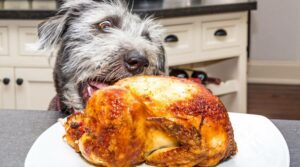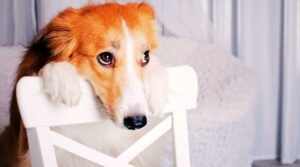If your dog licks his paws, is that normal behavior? If he bites his claws, is that the dog version of nail-biting in humans and something to be concerned about? When it comes to pups and their paws, humans can often get confused.
The fact is that a dog licking his paws can 'mean' all kinds of things, and may even be a sign of an underlying issue that his pet parent (that's you) will need to help him address. It's these issues we are going to take a closer look at here.
Why Does My Dog Lick his Paws so Much?
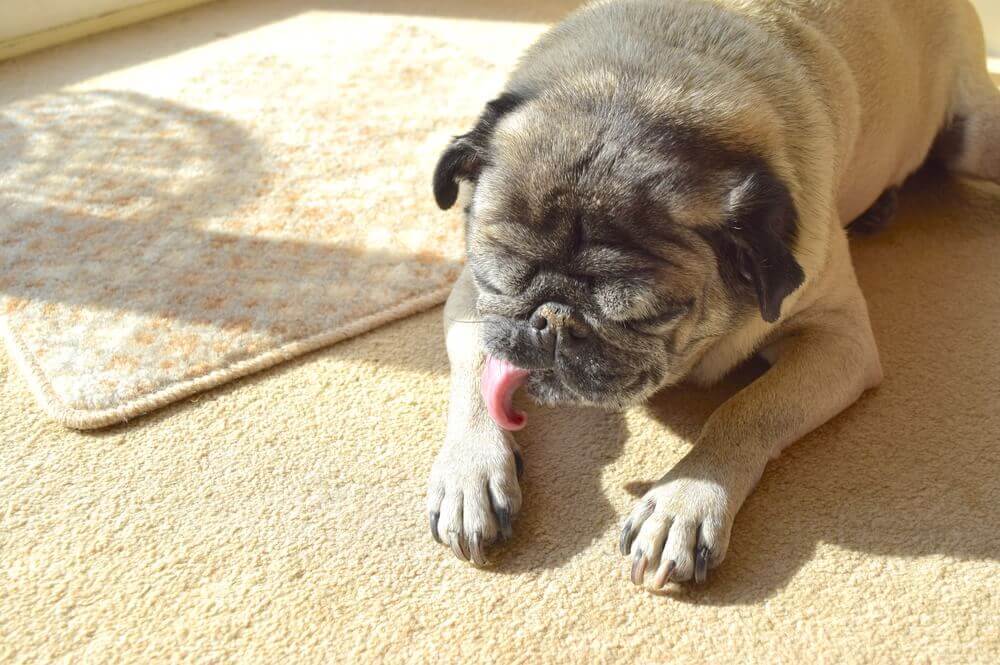
Sometimes licking his paws is very normal behavior for your pup simply because he's cleaning his feet. If he's been outside and his paws are dirty, muddy or sandy, he is going to lick his paws to clean himself up. Just like you are not fond of dirty, dusty feet, most pups prefer clean paws.
Dogs, unlike cats, don't wash themselves a lot. They clean themselves when they are dirty, not out of habit. Cats, who tend to be haughty creatures, might say it's because their caning counterparts just aren't as fastidious as them, but it's perfectly normal behavior.
If your pup hasn't been outside recently to get his feet grimy, or licks his paws a lot, then the behavior may be more of a cause for concern.
There are all kinds of reasons your dog may exhibit this behavior though, so tracking down the cause may involve some detective work on your part.
Here are some of the most common reasons.
1. Allergies
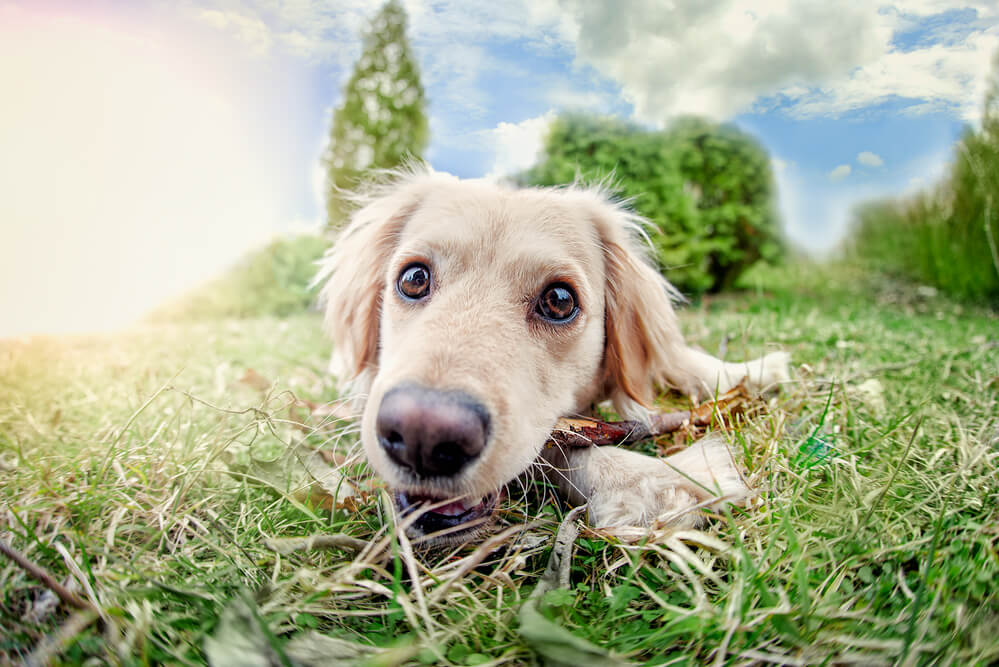
Dogs, like humans, are prone to allergies, and sometimes that may include being allergic to something that comes in contact with his paws. Possible irritants include certain grasses, pollen, having walked through stinging plants and more. As this will often lead to itchy feet, your pup may lick, and even bite, his paws to try to stop the itch.
Some dog food ingredients have even been known to cause allergies that affect the skin on the pads of dog's paws, leading to an itch that may have them gnawing at their feet too.
2. Foreign Objects

Unless he wears dog shoes when out - which lots of pups simply won't, or can't, walk in - your pup's paws may come into contact with all kinds of foreign objects that can easily become stuck between - or even in - the pads of the feet. Small stones, gravel, splinters and even shards of broken glass may be the reason your dog is suddenly licking his paws a lot.
Insect bites and stings may be a problem too. If a dog accidentally stands on a bee, for example, as bees do sometimes snooze in long grass, the barbed stinger will be left behind if he is stung.
Finally, fleas and ticks can lead to excessive paw licking as well. Ticks get everywhere when a pup is infested, including his feet, and a tick can all too easily become embedded in a pad. When you are checking for fleas and ticks when your pup returns from a walk or run in an area where they are likely to be, don't forget to check his feet as well as the rest of him!
3. Pad Injury
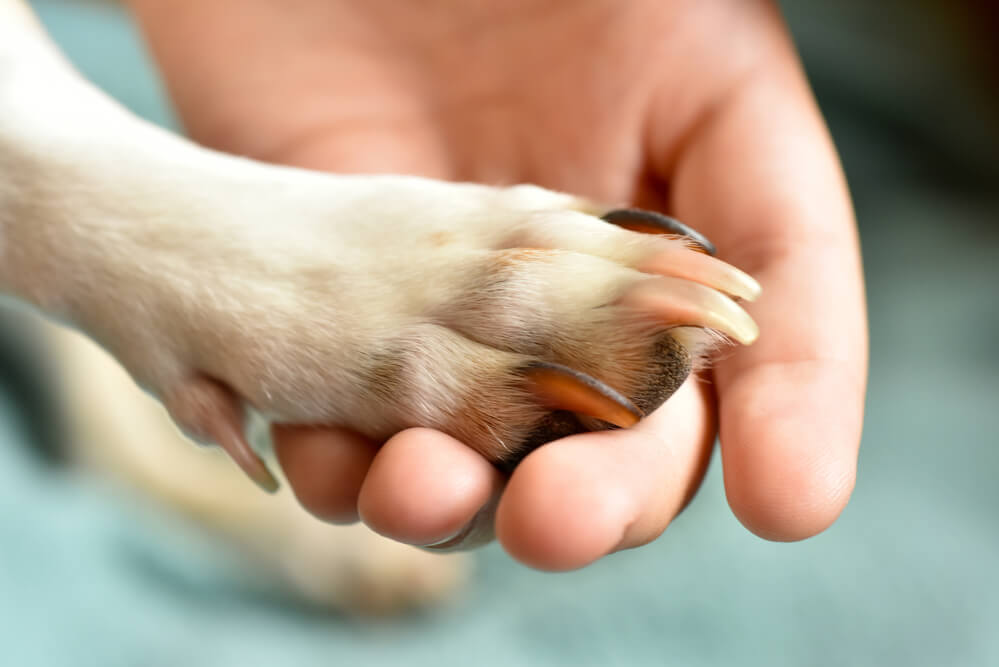
The chances are that you don't spend a lot of time looking closely at your dog's pads, the fleshy blobs on the underside of his paws (his version of toes if you like).
These are very sensitive and more easily injured than you might think. Not only can they be fairly easily cut by sharp objects in a pup's path, extreme temperatures - both hot and cold - can burn and damage the sensitive skin, one of the reasons dog boots are not as silly as some think for some pups.
If their pad is injured, a dog will lick his paws to try to stop the pain, or ease an itch. Of course, they may very well make the injury or irritation worse by doing so, which is why you'll need to step in to help.
4. Arthritis

Can't keep the pup-arazzi away.
Commonly seen in older dogs, arthritis may be another cause of dogs licking their paws. Dogs suffering from the condition may lick their paws, especially at their 'wrists', in an attempt to self soothe the pain away.
While lots of people say that arthritis in dogs is normal, which it often is as they age, that does not mean it should be ignored, as there are things that can be done to help soothe the pain that are far better for your pup than licking his paws.
5. Boredom, Anxiety or Sheer Habit
Dogs get bored. Some also get anxious, especially when left alone or when put in new situations they are not quite sure about (like a new forever home). And some dogs do things out of sheer habit. All of these things may manifest themselves as paw licking.
What Is Considered Excessive Licking?
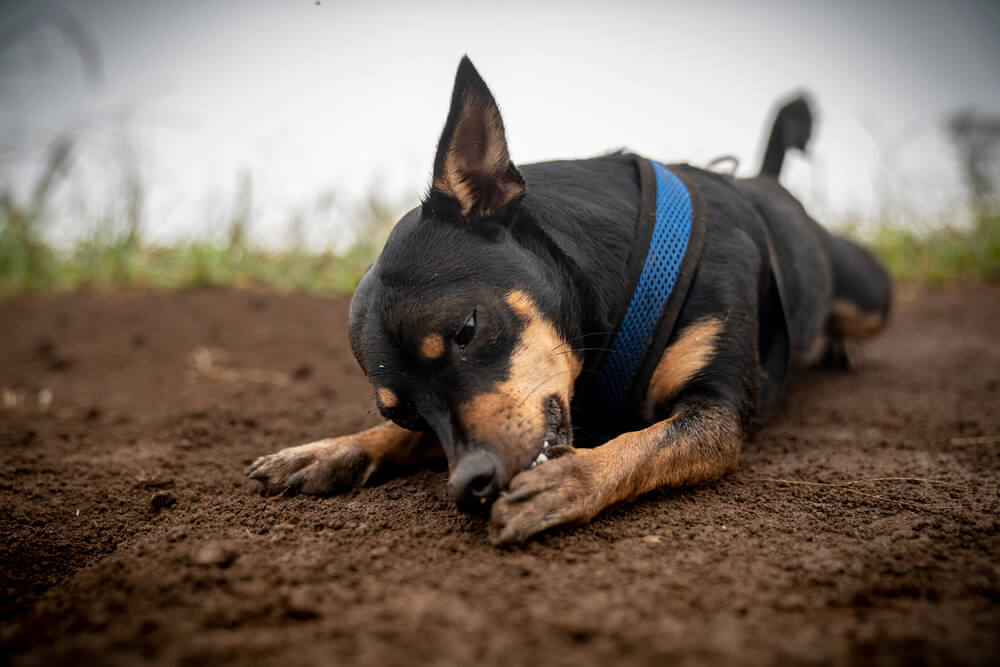
- The pup licks his paws often, not just when he's been outside or otherwise gotten dirty.
- The licking is accompanied by limping, which may indicate an injury to the paw.
- The paw licking gets worse after eating certain foods, which may indicate a food allergy.
- The behavior occurs after they have been walked in a certain area, which may indicate that there is something there that irritates his feet.
- The behavior causes cracked or damaged pad skin, something that will impede the pup's ability to walk properly.
Why Do Dogs Chew on Their Feet?
Often if a dog chews his feet it follows licking his paws, and is the result of a frustration that licking did not have the desired effect, so, in their mind, chewing may work better. This can, of course, lead to more serious foot injuries and should be addressed promptly.
Why Does My Dog Bite His Paws?
If your dog bites his nails, he may be trying to remove an object lodged in them, or literally be trying to clip them himself because they are too long or ragged. The solution to this problem is to keep his nails clean and professionally trimmed.
DIY nail clipping is rarely a good idea as it can cause serious injury, especially as there are lots of blood vessels in dog nails.
Many simple dog grooming tasks you can indeed do yourself, but nail clipping should not be one of them. You can, however, check his feet for debris after a walk and clean them with a soft, damp cloth if needed.
How To Stop a Dog From Licking His Paws?

How can you stop a dog from licking his paws? The answer to that question is far from a simple one, as it will depend very much upon just why he is licking his paws. Here are some tips, suggestions and even a few helpful products that may be of help.
Treating Fleas and Tricks
If you find - or at least suspect - that fleas or ticks are the cause of excessive paw licking, then the bugs have to be eliminated quickly!
Your vet may have recommendations for you, but to get the process started before a vet visit you can make use of a flea and tick shampoo - you can find them in medicated varieties and all- natural alternatives, depending on how you prefer to treat your pet.
To stop the paw licking behavior if it's related to fleas, wash the feet carefully with the shampoo. A tick will need to be removed (carefully, with tweezers) but washing the area may relieve itching.
Some pet parents try homemade remedies for fleas and ticks, but they are rarely effective. If you have noticed fleas or ticks and all the stores are closed, you can try making an emergency homemade flea bath like this one, but while it might help in a pinch, you should still look for more effective remedies as soon as you can.
Homemade Flea Bath
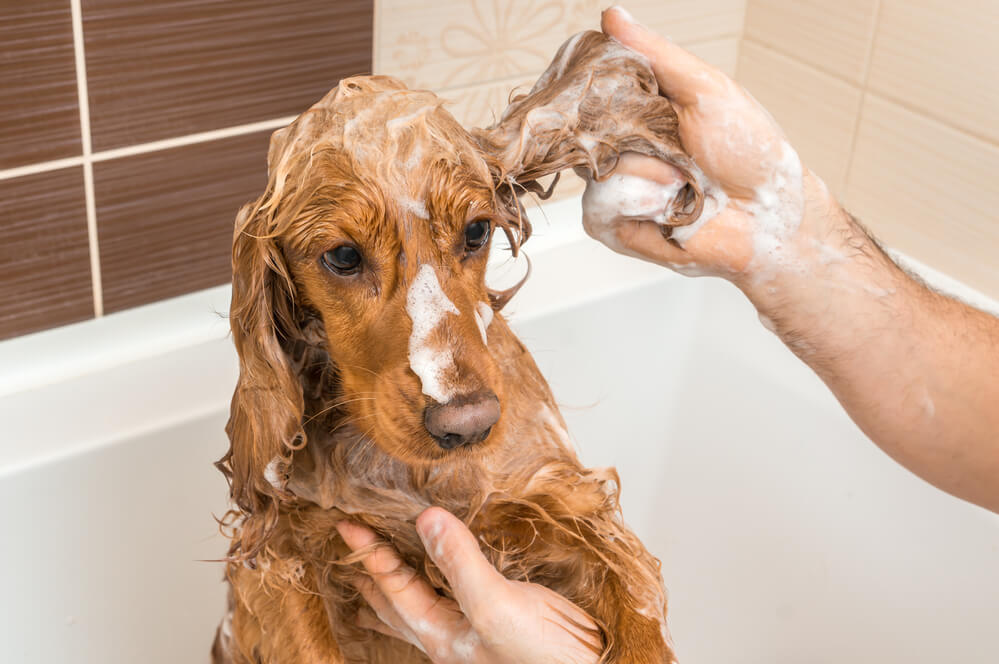
What You'll Need:
- Baby shampoo or dye free dish detergent.
- 1 quart cool, clean water.
- 1 cup of white vinegar.
- 1 large spray bottle.
- Disposable gloves.
How It's Done:
1. Combine all the ingredients in the spray bottle and shake it well.
2. Put on gloves to avoid getting bitten by ticks or fleas yourself.
3. In a bath environment (or in your actual bath) spray the pup with the mixture, paying special attention to the areas where you believe the fleas to be.
4. Massage the mixture into the fur gently.
5. Rinse away with lukewarm water.
6. Check your pup for visible pests and then towel dry him.
If you spot fleas or ticks, dispose of them quickly, but not in indoor trash bins as they may, quite literally, jump out. If you live in an area where Lyme disease is common and find a tick, bag it in a Ziploc baggie, as it will need to be tested.
Treating Paw Injuries
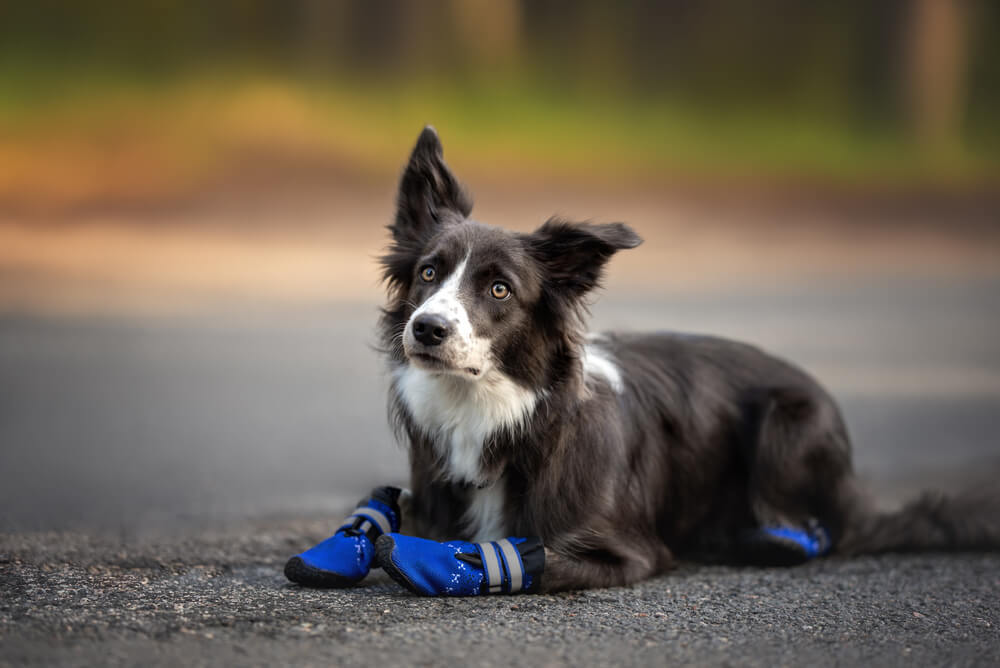
If a paw injury is very minor - a scratch, small cut etc. - treating it with a foot ointment designed for dogs (Musher's Secret is our favorite) may solve the problem fast. For more serious problems, especially if your pup is limping, he should see the vet as soon as possible. Infected paws can lead to serious, permanent damage, and so should never be ignored.
If your pup tends to suffer from cracked paws in extreme temperatures, a moisturizing foot cream may help. A good pair of comfortable, well-fitting dog boots, may be an excellent buy too.
Most importantly though, if weather conditions are too extreme, your pup should not be walked in them. Here's a good test. Put your hand on the ground. If it is so hot or cold it hurts it, and makes you snatch it away, then your pup's paws should not be exposed to it either.
Allergies

How you treat allergies that might be causing excessive paw licking in dogs depends on just what the allergy is. If it seems to be to a certain grass or soil, keep pup away from the areas, or ensure their feet are covered by booties.
If food seems to be a problem, you can try a hypoallergenic dog food and/or see your vet for formal allergy testing, which is also often a good idea for environmental allergies too. Allergies often cause far more health problems than just paw licking, so they should be addressed as fully as possible.
Boredom, Anxiety or Habit

Excessive paw licking caused by behavioral issues like boredom, anxiety or habit will also need to be addressed according to the actual problem, of which paw licking is usually just one symptom.
Bored dogs can be amused by being given more playtime with you, or a stimulating puzzle toy when you are not available.
Anxious dogs can be harder to help. The treatment should begin with a vet visit, and then may include things like calming chews, calming collars, calming beds and, in severe cases, behavioral health training with a professional.
Habit based paw licking can be tough to treat too. It's almost like a human that bites their fingernails, not every deterrent will help every pup, and you should speak to their vet about what the best course of action might be.
One thing you can do is keep your puppy's nails trimmed and pads as soft as possible. This will mean there are fewer reasons for your pup to pay too much attention to his feet in the first place, at which point you can distract him with something else if he does begin the unwanted behavior, such as a healthy treat or an engaging toy.
Shouting or spanking won't help, your pup simply won't understand what he's done wrong!
Next Read: Why Do Dogs Hide Their Bones in the House?

